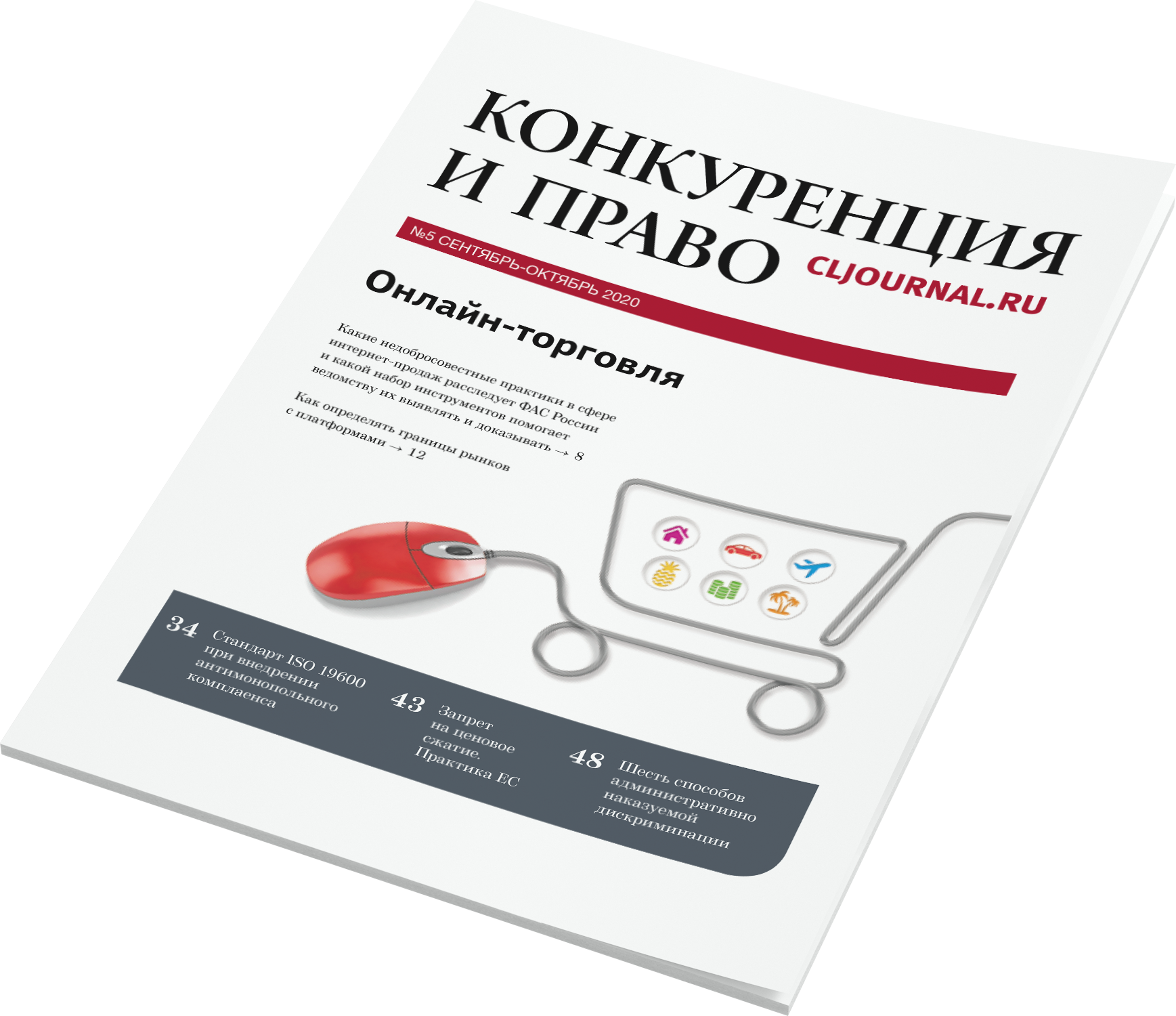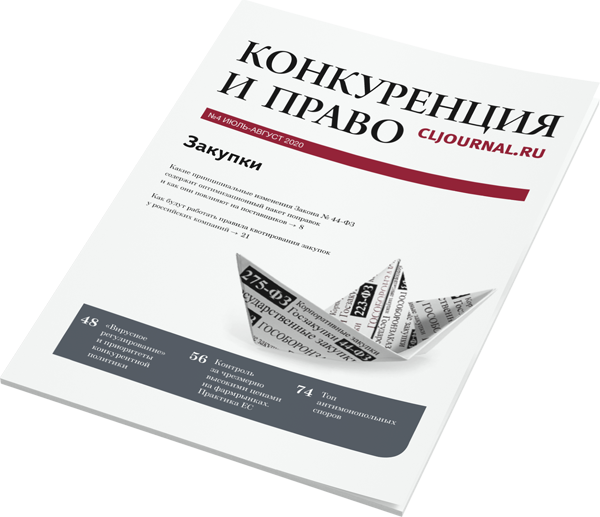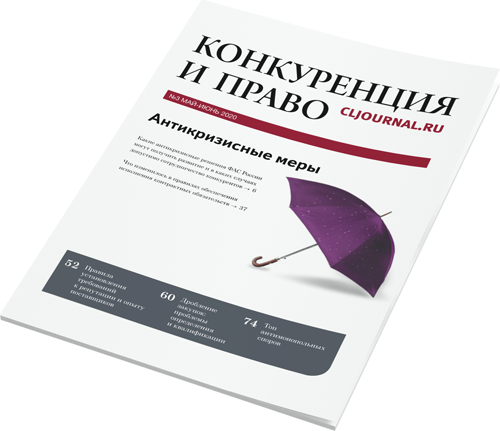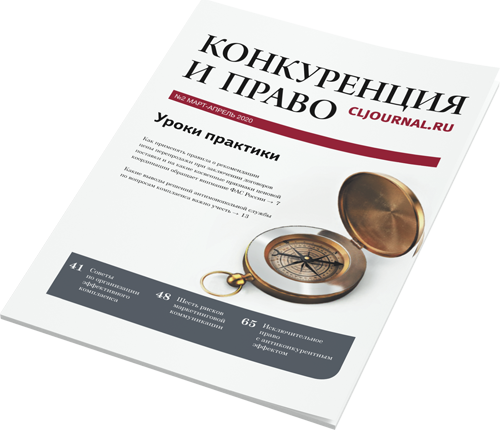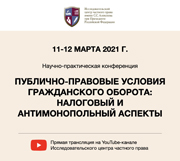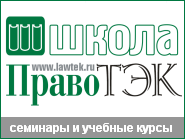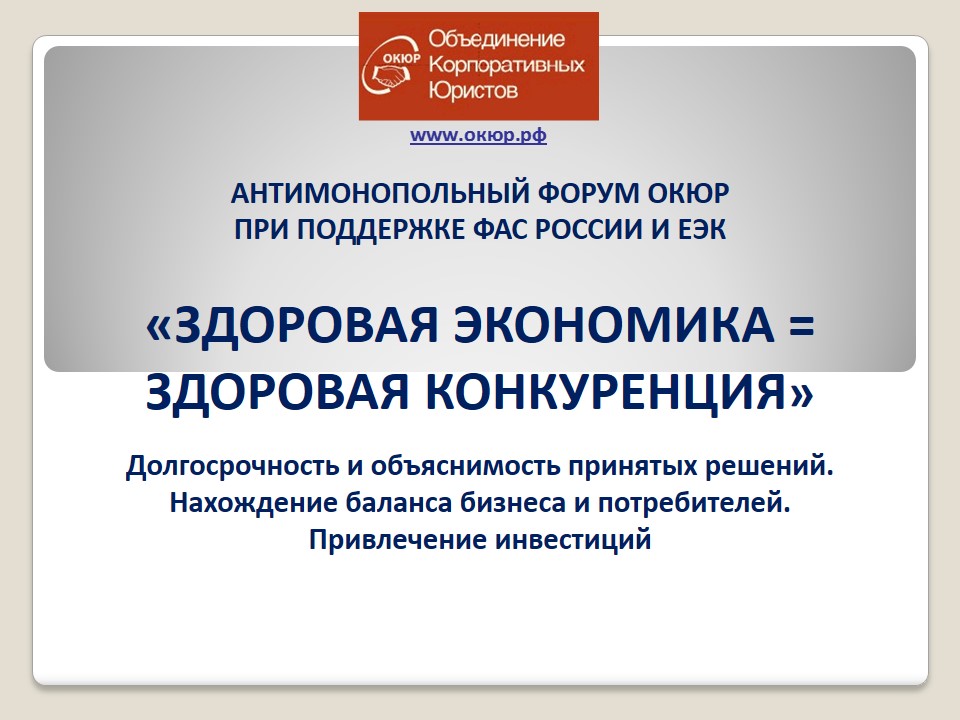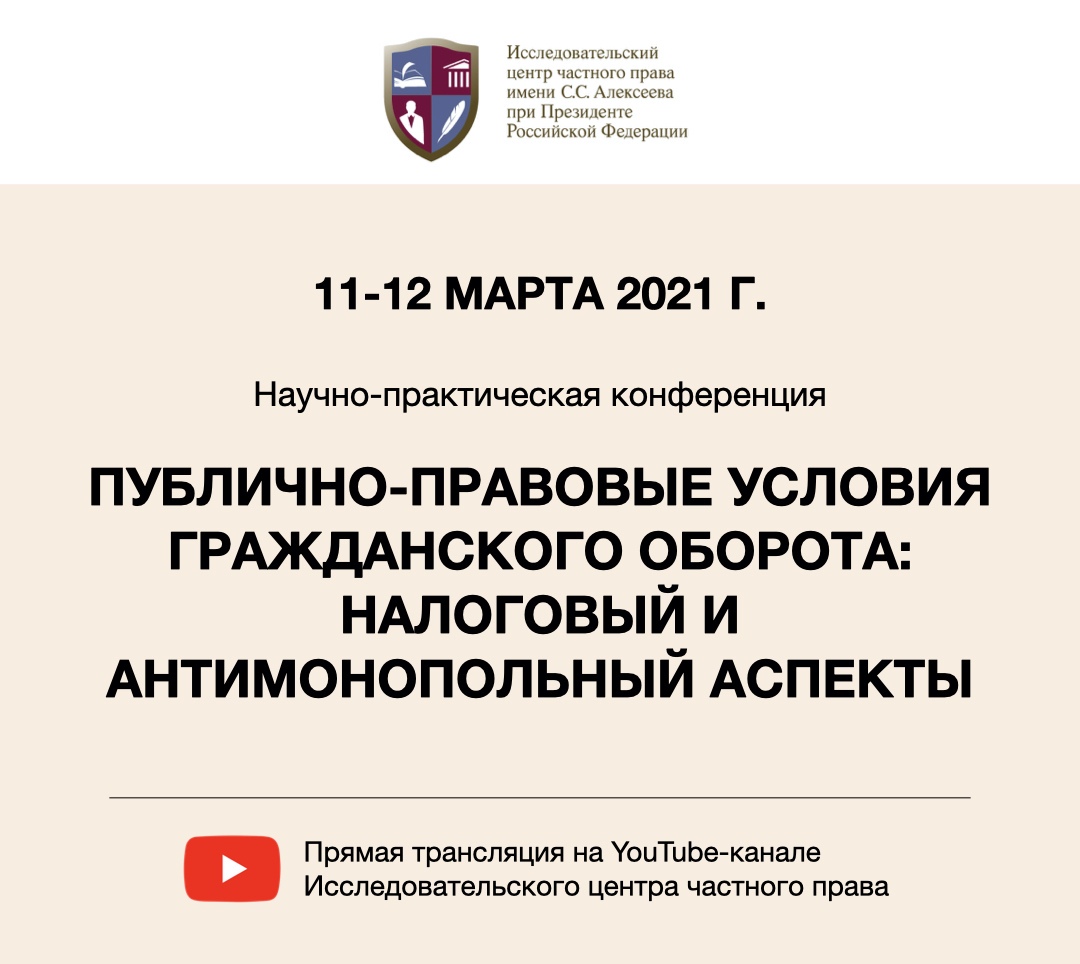|
||||||
 Elena Sokolovskaya, Chief Expert of Competition and Law journal
The crisis has made sharper the need for a more efficient use of antimonopoly measures in cases where violations have been committed in socially important spheres such as pharmaceuticals and healthcare. The bad-faith conduct of actors in these markets has become an especially sensitive matter against the backdrop of the severe situation with the coronavirus epidemic. The Russian Federal Antimonopoly Service is closely watching such violations caused by a soaring need for specific categories of goods and services.
Below we highlight two notable cases from the supervisory body’s recent practice. In March, the Federal Antimonopoly Service initiated a case based on elements of a violation of article 24(6) of Federal Law No. 38-FZ “On advertising” dated 13 March 2006in connection with radio broadcasters inaccurately advertising the medicine Arbidol as being a therapeutic agent against the COVID-19 infection. The information used in the advertisement that Arbidol actively counteracts the coronavirus lay beyond the scope of the indications set out in the information leaflet. In April, based on similar circumstances, an investigation was launched aimed at identifying elements of unfair competition in the form of misleading consumers by disseminating inaccurate information concerning the medicine Allokin-alfa. Information was disseminated on a website dedicated to the medicine about its efficiency in the prevention and treatment of the coronavirus. However, the effectiveness of the medicine in the treatment of COVID-19 had been confirmed neither by clinical trials nor by the information leaflet. Now, the market of medicines is expanding and competition is intensifying: the coronavirus has given a reason for using marketing strategies with which manufacturers are trying to stress the unique character and advantages of their products. Such declarations often guarantee the safety of the medicine or its consummate performance in the prevention and treatment of this disease. Information about efficiency helps the manufacturing company to reach the maximum scope of potential consumers and, accordingly, boost sales. However, bad-faith conduct not only affects the competitive environment in an adverse way - it may cause damage to consumers owing to the unpredictable effect of the medicine. Any statements which go beyond the properties and characteristics set out in the information leaflet and assert that the use of that specific medicine gives a positive medical effect are unacceptable as a form of manipulating demand. The supervisory body is closely following both prices for socially important products, including medicines and medical products, as well as the good-faith nature of marketing policies aimed at promoting goods. Businesses should be aware of the growing risks of being held liable, and should take these into account in their advertising campaigns. Advertisements for medicines should be accurate and consistent with the information obtained during clinical trials. The properties declared may not go beyond the scope of the indications set out in the information leaflet. Moreover, such advertising should not guarantee a positive effect and the efficiency of medicines. The infection itself is being fought by medical
institutions; the legal consequences of the infection, however, is the realm of
law enforcement authorities, including the Federal Antimonopoly Service. Practice shows that the antimonopoly body reacts in a
timely manner to violations committed in crisis situations, especially in the
spheres that are most prone to the risk of unlawful conduct. 03 июня 2020 г.
|
|


